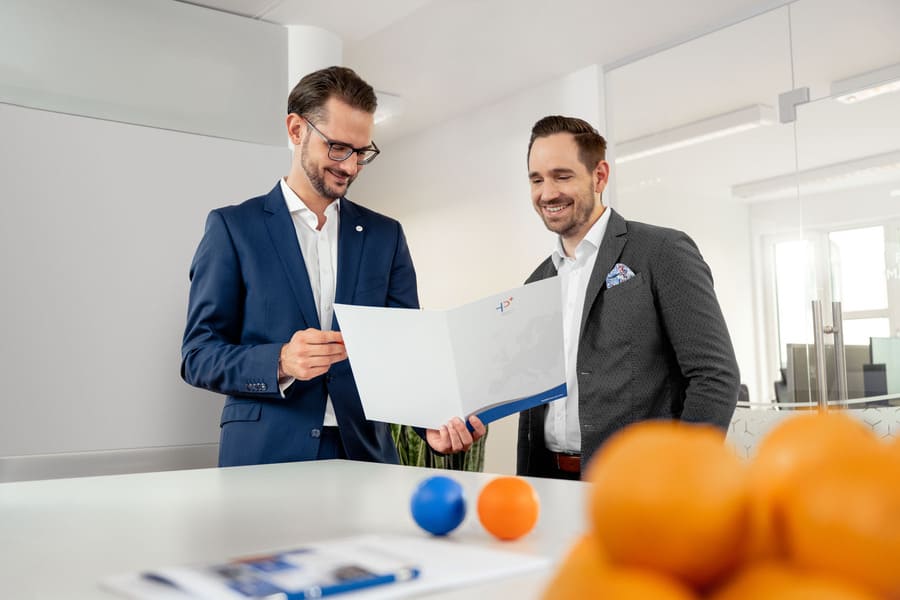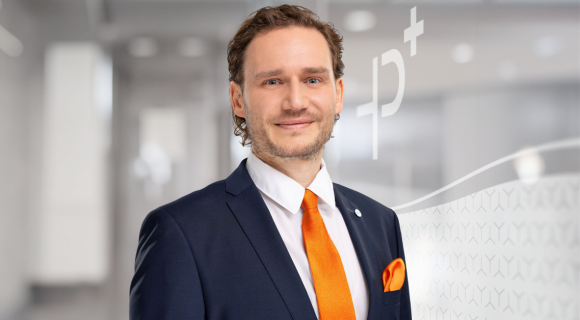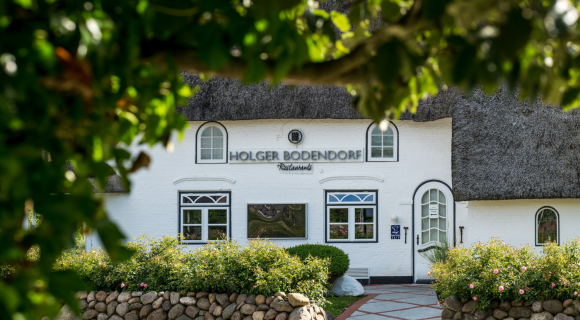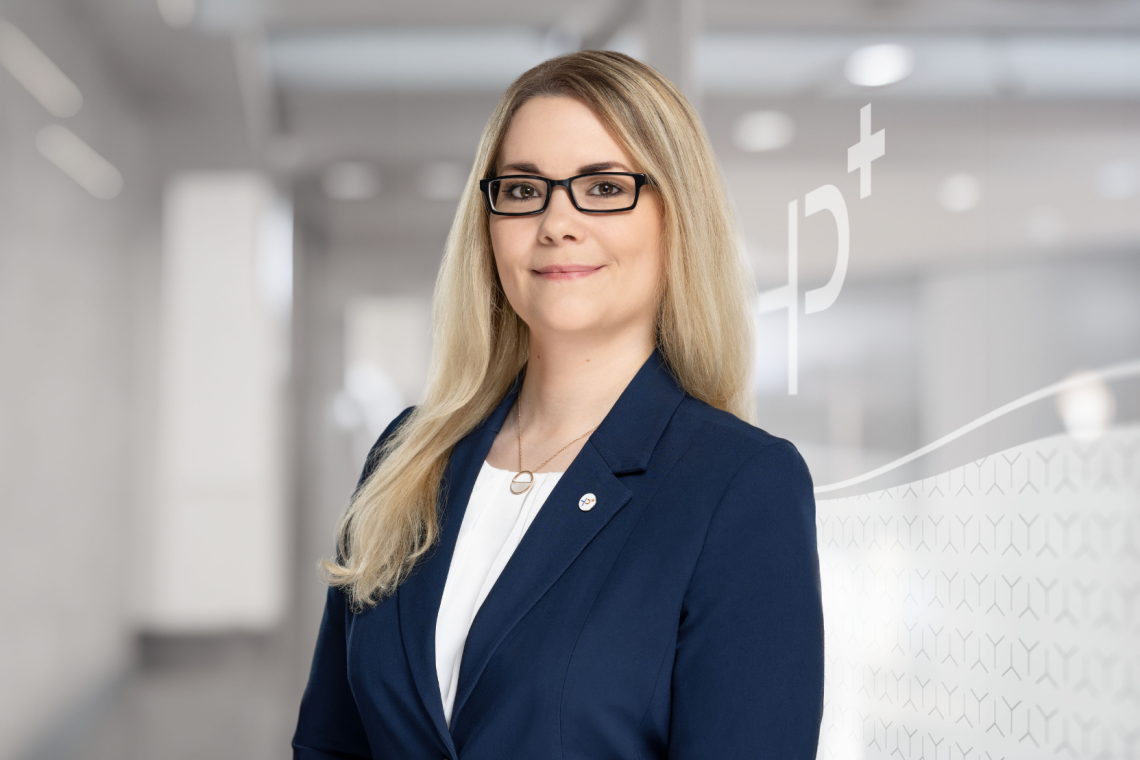
Added value for partner hotels: Melanie Saliger on tailor-made tools and technological milestones
In our interview with Melanie Saliger, she provides exciting insights into her new role as Chief Product Officer and the strategic goals of HotelPartner. Melanie’s focus is on aligning product development with the needs of partner hotels to enable faster success. With a wealth of experience and a deep understanding of the operational challenges, she has already optimised key internal structures and introduced forward-looking tools such as the new group tool, which has been very well received by hoteliers. Read on for an exciting look at innovative developments and the future of technology in revenue management!
- What do you want to achieve in your new role as Chief Product Officer?
My focus is to continue to improve HotelPartner’s product offering with a clear focus on our partners’ needs. We want to develop features that are not only intuitive and efficient, but also enable our partners to achieve success more quickly. I am also working hard to optimise our internal processes to further drive agility and innovation.
- What are the benefits of this new structure for partner hotels?
The biggest benefit for our partner hotels is my many years of operational experience. I have seen first-hand the challenges and pain points they face in their day-to-day operations, whether through numerous on-site meetings or direct insight. Previously, I was not always able to influence all internal priorities, which was often frustrating. Now I have the opportunity to specifically address these issues and prioritise them internally. Thanks to my understanding of customer needs and my technical affinity, I act as a bridge between business needs and IT. This not only creates value for our partners, but also ensures that their needs are met in an efficient and practical way.




- What milestones have you already reached in your first few months in the new role, what have you already successfully implemented?
Most of the progress so far has been internal, but it is laying the foundations for sustainable success. A key milestone has been the introduction of a structured process for developing new functionality. Instead of coding on demand, we now have a clear, standardised process (basic, standard, pro) that ensures each feature is well thought out and implemented efficiently. We have also made great strides in project management: a newly implemented tool helps us to manage and report on projects more effectively, so that everyone knows the status of a project at all times.
Externally, we launched our new Web Booking Engine (WBE). By working in a structured way, we were able to successfully launch this important tool. Another milestone is the ‘Group Tool’, which helps hoteliers to optimise their calculations for group bookings and thus to create offers more easily. It shows which offers are appropriate for particular groups and how much business can be displaced by group discounts. This tool is particularly helpful in driving direct bookings and can be considered a significant success.
- Has there been any recent feedback from customers about significant changes or improvements to the HotelPartner Performance Platform?
Much of what we are currently implementing is preparatory work in the background – this means that our partners are not yet directly aware of all the changes. Most of the work is currently going into structuring and optimising the interfaces, which will create clear and efficient processes for the future. As a result, feedback on these changes has been somewhat limited as they are not immediately visible to our partners.
However, we have already received very positive feedback on our new group tool. Hoteliers report that it makes their job much easier and provides greater clarity on pricing and the impact of group bookings. This tool is seen as a great added value and the feedback has been consistently positive.
- How has internal communication changed as a result of the new structure?
Internal communication has improved significantly as a result of the new structure. In the past, agreements were often made on an ad hoc basis and not always documented, which could lead to misunderstandings and confusion. Now everything is done through defined processes where every agreement, prioritisation and planning is documented. There was always a lot of documentation, especially at the technical level, but now everything from project processes to deadlines is documented.
Another positive effect is that the IT teams now communicate much more closely with each other and have regular meetings. We talk to each other a lot more, which promotes transparency and collaboration. There are also fixed times when my team can contact me directly to quickly discuss challenges and find solutions together.
- How does our IT team develop new applications and features to ensure they meet the needs of our partner hotels?
The development of new applications and features follows a clearly structured process. Whether it’s an extension of existing functionality or a completely new application, it all starts with structured requirements management. Programming only begins once the requirements have been written down and thoroughly checked for feasibility by the IT department.
For new developments, especially those involving external partners, we often start with a kick-off call to assess whether the project is relevant to us. This is followed by an in-depth meeting with an IT staff member to discuss the exact requirements, responsibilities and timelines. This is also about understanding exactly what the partners – whether new or existing – want and comparing whether and how these can be achieved.
Once the requirements have been fully clarified, they are documented and released for internal coordination. They are then prioritised and the development process is implemented in clearly defined phases. Each phase has milestones that must be met before moving on to the next, such as creating a prototype, testing in a test environment, deployment and finally going live.
This process ensures that the needs of the partner hotels are fully considered and implemented in a coordinated, controlled process.



- How do you deal with the rapid pace of technological development, especially in a field as dynamic as revenue management?
The rapid pace of technology development is often a challenge, especially in a field like revenue management, which is constantly evolving. In order to stay on top of things, I keep myself well informed. For example, I read blogs and technical articles to gain a deeper insight into new technologies. A key topic at the moment is artificial intelligence (AI), which is experiencing a particularly strong upswing.
However, it is important not to blindly follow every trend. I always keep a cool head and work with our IT team to assess whether new technologies really make sense for our business. The key question is always: will this innovation add real value for our partners? It is important to make informed decisions rather than being driven by buzzwords.
Our aim is to offer our partners a wide range of technologies and solutions so that they can choose what best suits their needs. However, it is a challenge to keep up with the pace of development, especially in recent years when technological progress – especially in the field of AI – has accelerated significantly.
- How do you see the future of technology in revenue management and distribution in the next 5 to 10 years? Will human expertise still play a role?
Human expertise will continue to play a central role. Technology, including AI, will continue to provide support, but the idea of ‘AI taking over the world’ is still a long way off. Artificial intelligence may be impressive, but it is often not as mature as many believe. Algorithms are often prone to error, and human judgement remains essential in many areas.
The demands on employees, particularly in the front office, have already changed significantly and will continue to do so. A few years ago, the focus at the front desk was on traditional tasks, but today employees must also have technological skills – they need to understand CRM systems and have an overview of revenue management strategies. Guests are more informed today and expect staff to be knowledgeable, especially when it comes to comparing prices on different platforms. In the future, it will be even more important to have employees who not only know how to use technology, but also have the resilience and expertise to operate in this complex environment.
While automation is expected to eliminate some jobs in the hospitality industry, the human element will remain crucial. The focus will shift to better use of technology. There will be significant advances in revenue management and IT in particular, as well as in the way people travel and book. New trends could emerge, such as the ability to book rooms on a daily basis and a fully automated check-in process via smartphones.
There could also be a counter-movement: The desire to slow down and ‘digitally detox’ could lead to a more purposeful use of technology, for example by consciously ‘giving up’ devices to promote one’s own wellbeing. Upselling – the ability to offer guests additional services that they really value – will also be exciting. People will remain an indispensable part of the value chain, as technology alone cannot cover the entire service and experience spectrum of the hotel industry.



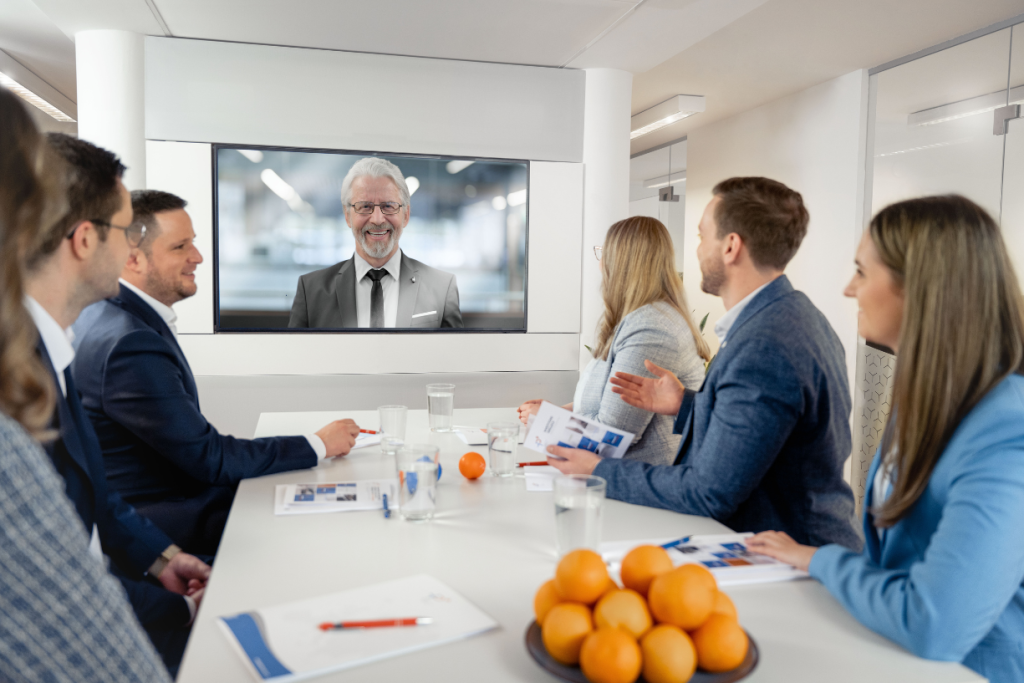
- What trends in the hotel industry are you currently seeing that are particularly exciting from a technological standpoint?
The biggest technology trend in the hotel industry right now is the integration of artificial intelligence (AI). AI-powered tools, such as chatbots, can already help improve service for guests, especially those with language barriers. But while AI has potential, the industry still faces some challenges. Currently, hotels have many isolated systems (silos): a CRM, a PMS, separate revenue management tools – rather than a comprehensive all-in-one solution. A key trend over the next few years will therefore be to link these systems together into a single platform. This would make day-to-day work easier for staff, who would no longer have to switch between different systems, but would be able to control everything from a single interface. This will also provide a further boost to AI, as it can reach its full potential in such networked systems.
Another important trend is the development of AI assisted revenue systems, which could be particularly attractive to smaller hotels or guesthouses. Such systems offer smart, data-driven solutions that help small businesses with limited resources by automating basic revenue management tasks.
There is also a strong trend towards using smartphones to improve the customer journey. Guests are increasingly able to control everything from booking a hotel room to restaurant reservations, spa treatments and online check-in via their smartphones. These developments are happening at a rapid pace, and it won’t be long before other innovations follow to further enhance the guest experience. The challenge is not only to accelerate technological progress, but also to make it user-friendly and meaningful.
- Can you give us any insight into any upcoming product innovations or technological developments that you and your team are currently working on?
Yes, we are currently working on exciting developments that will significantly expand our product landscape and make things easier for our partners. We are currently evaluating new PMS providers and have received a number of enquiries from the UK market which we are considering.
There’s a lot going on at the moment, particularly in terms of re-certification with providers such as Mews and Apaleo; every interface is being reviewed and updated; we already have 10 new interfaces in the pipeline, including Re:Guest, Asa, Protel, Casablanca, Family PMS and Maestro PMS; we’re particularly keen to deepen our partnership with Incert for our new Web Booking Engine (WBE); our aim is to make the integration so seamless that customers won’t even realise they’re connected to Incert.
We are also in discussions with Daily Point as our CRM provider and other CRM systems to enable better connectivity as we have not had any CRM connections to date. We have many systems in the pipeline and we are setting clear timelines to determine when the integrations can be completed.
We are also working on a direct connection with Airbnb, which will provide our partners with better support and faster response times in emergencies. We currently have over 40 new interfaces in the pipeline and this is just the beginning.
Another highlight is our product innovations within our G4.5 system landscape. We have launched a dynamic MS trigger that automatically detects and optimises gaps. This algorithm maximises sales, but can also be disabled at the partner’s request.
We have also optimised our rate shopper to improve pricing for our back office partners. We are working on a new AI-based algorithm that reacts to market changes and is based on up-to-the-minute parameters; in the event of cancellations, the system can actively intervene and adjust categories. There are many AI agents working in the background while the portfolio manager remains in control.
It is important that all these developments are carried out in close consultation with our partners. These optimisations are not necessarily directly noticeable to clients, but they bring massive simplifications and improvements to our partners. We have made significant progress in the last two months and the focus on AI will provide us with many more opportunities in the future.
Vielen Dank für die spannenden Einblicke in deine Arbeit als Chief Product Officer bei HotelPartner, Melanie! Deine Leidenschaft für Innovationen und dein tiefes Verständnis für die Bedürfnisse unserer Partnerhotels tragen maßgeblich dazu bei, dass wir unsere Produkte stetig weiterentwickeln und die Branche nachhaltig prägen können.
Thank you, Melanie, for sharing such an exciting insight into your work as Chief Product Officer at HotelPartner. Your passion for innovation and your deep understanding of the needs of our partner hotels play a key role in helping us to continuously develop our products and make a lasting impact on the industry.
The entire HotelPartner team is excited to see what innovative ideas and solutions you and your team will implement in the coming months.

